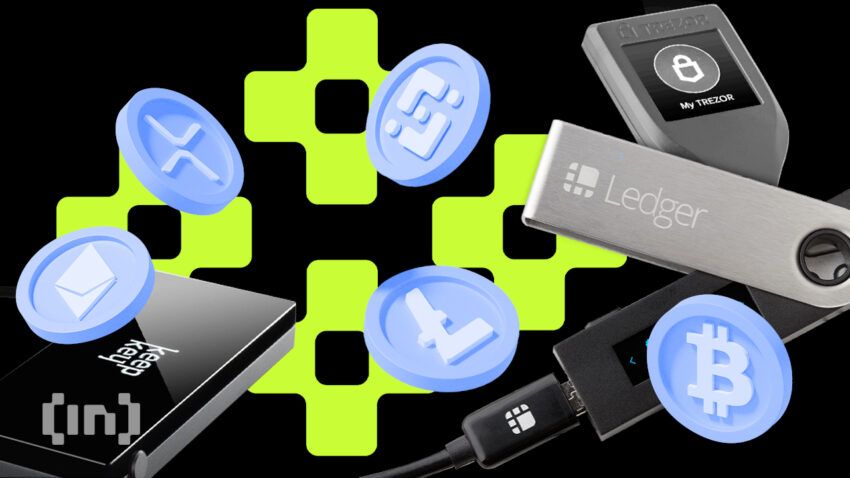It has been a rough week for crypto wallet maker Ledger due to controversy arising from a “Recover” update. Can it win trust by going open-source, like its competitor GridPlus?
Hardware wallets were considered the safest option to hold cryptocurrencies. But Ledger, one of the flag bearers of hardware wallets, has gotten into deep waters after a new opt-in “Recover” feature.
Competitors Rush Towards Open-Source Marketing Campaign
While Ledger faces community backlash, its competitors have put the situation to their advantage. GridPlus, the Web3 hardware security provider, announced plans to open-source its firmware in Q3, 2023.
It cites a story about “Crypto AG,” a company that provided encryption devices, mechanical gears, electronic circuits, and silicon chips and software to more than 120 countries.
But, the U.S. Central Intelligence Agency (CIA) secretly owned the company and accessed the codes countries used for encrypted communications.
The hardware wallet manufacturer tweeted that open-sourced code is necessary for such a wallet to not exist in the future. Gridplus writes:
“We as an industry must hold ourselves to the highest standards, and we call on all other hardware wallet manufacturers to open-source their firmware as well for the benefit of our ecosystem.”
Along with GridPlus, Trezor also utilized the situation for its marketing campaign. It highlighted its open-source security and offered a 15% discount on its hardware wallets.
There is no Backdoor: Ledger Co-Founders
The controversy that started with a seed phrase backup feature intensified with a Ledger Support tweet, which has now been deleted.
Ledger Support tried to regain trust by tweeting that it has always been possible to write firmware that facilitates key extraction.
The company wanted to convey the message that it won’t break customers’ trust by extracting key phrases, but the intention got backfired. Now the community wants an open-source firmware to verify the code themselves.

Nicolas Bacca, the co-founder of Ledger, came forward to explain that there is no backdoor. Also, the former Ledger Chief Executive Officer (CEO) tried to convey that there were no backdoors and that it was a PR failure rather than a technical failure.
Community Demands Open-Source Firmware From Ledger
There have been fearful sentiment amongst Ledger users, and they want to verify the code themselves rather than trust Ledger.
Hence, Ledger has been demanded to open-source its firmware. Open-Source code allows developers to view the code and thus verify what a particular project is trying to execute.
A Twitter user wrote:
Dear Ledger,
The only path forward is open source. Trust can only be regained if we can see the code.
Words aren’t enough, especially since there is conflicting information coming from your team.
As a long-time user, I’m already shopping for alternatives.”
Ledger already has open-sourced device applications and communication between clients and the application. But, the co-founder Bacca believes, “Having a fully open source code wouldn’t help with that since you don’t really have a way to check what’s running inside the device.”
BeInCrypto has reached out to Ledger but has yet to receive a response.
Got something to say about Ledger or anything else? Write to us or join the discussion on our Telegram channel. You can also catch us on TikTok, Facebook, or Twitter.
For BeInCrypto’s latest Bitcoin (BTC) analysis, click here.
Disclaimer
In adherence to the Trust Project guidelines, BeInCrypto is committed to unbiased, transparent reporting. This news article aims to provide accurate, timely information. However, readers are advised to verify facts independently and consult with a professional before making any decisions based on this content. Please note that our Terms and Conditions, Privacy Policy, and Disclaimers have been updated.


